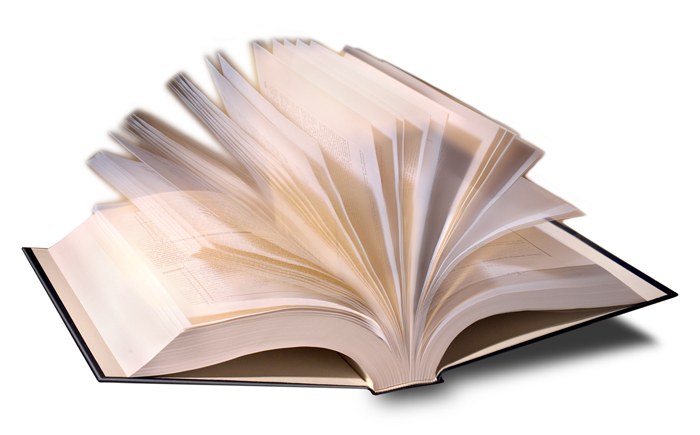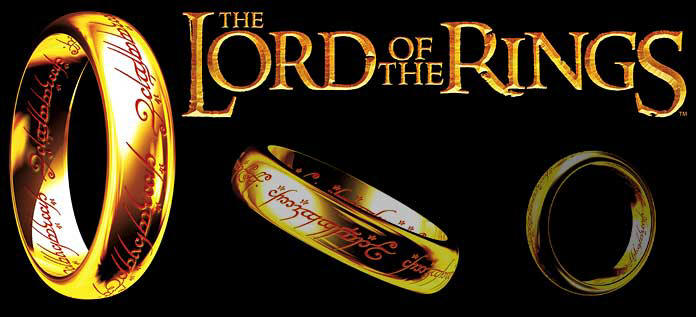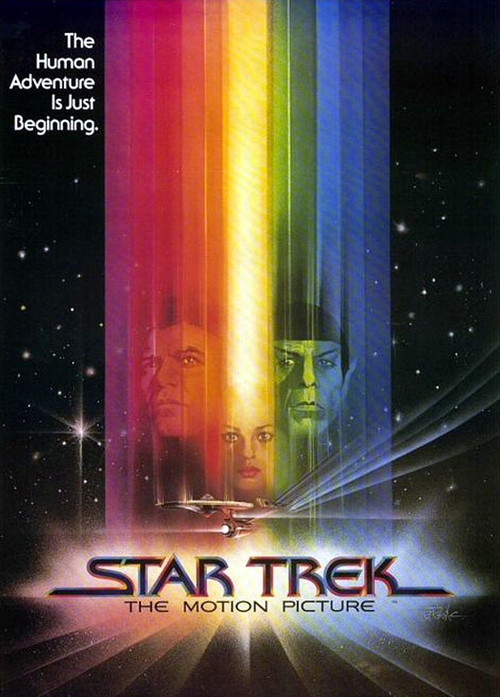I have noticed an interesting tendency here in Lithuania while preparing for the Lithuanian language exam: the texts that are given for us to analyse are nearly always about how bad the situation of literature in the modern society is. In fact, it seems that many of the Lithuanian literature teachers also feel that way. But to be honest, I disagree with that point of view.
 Usually the authors of the texts that we are given point out the problem, but never the solution or even an example of what they would like to see. Generally it comes down to "it was better in the old days!" and I was quite pleasantly surprised when I saw the last text that we were given to practise on. There the author says that the others, who claim that people got more benefit from reading books during the time Lithuania was occupied by the USSR than in the modern times, are essentially wrong. He elaborates by giving some background information about this: back then, Lithuanians couldn't get many books by Lithuanian authors because of two reasons - one, USSR wanted them to lose their sense of nationality, and limiting and censoring national books was a great way to do it, and two, books, as pretty much everything else, were quite rare overall. Thus they had little choice but to read every book by every Lithuanian author that was ever released, not caring about how good those books were. However, even he says that nowadays the situation hasn't improved, just changed - people write books to get money, others read books without really understanding what they read.
Usually the authors of the texts that we are given point out the problem, but never the solution or even an example of what they would like to see. Generally it comes down to "it was better in the old days!" and I was quite pleasantly surprised when I saw the last text that we were given to practise on. There the author says that the others, who claim that people got more benefit from reading books during the time Lithuania was occupied by the USSR than in the modern times, are essentially wrong. He elaborates by giving some background information about this: back then, Lithuanians couldn't get many books by Lithuanian authors because of two reasons - one, USSR wanted them to lose their sense of nationality, and limiting and censoring national books was a great way to do it, and two, books, as pretty much everything else, were quite rare overall. Thus they had little choice but to read every book by every Lithuanian author that was ever released, not caring about how good those books were. However, even he says that nowadays the situation hasn't improved, just changed - people write books to get money, others read books without really understanding what they read.
As I've pointed out earlier, there is still something that was not mentioned in the essay there, and that is - when does the author think people used to actually read into books? If not in the modern times, not during the Soviet occupation, then when else? If we go back through the history of Lithuania, we'll see that there was a brief period between two wars when the country was free. However, back then the society was still divided into different classes, and literature was basically the field of the richer people. The question remains - did they really read into what they read, or did they just appear to have done so? And if we travel even further back through history, we'll see a long period of occupation by the Russian Empire, which again limited and censored all Lithuanian books. Maybe even further back, then? No, if we go back, we'll see that we were merged with Poland, so any literature that was read was in Polish. And if we attempt to go further back, we'll see that the only things people wrote back then were formal letters and documents, since the written language itself was not completely developed at the time. So what do they suggest the role model of reading into literature would be?..
There is another thing I want to point out. Why do the authors believe that reading into literature will bring forth some kind of salvation? They seem to be under the impression that literature is supposed to enhance people's spiritual life and be the guide throughout the life. But that's not why we read books. Have you ever started reading, thinking "ooh, this book is going to unlock my spiritual powers and allow me to grow!"? Didn't think so. And I doubt people ever did that. The only exceptions would be religious texts, perhaps, but people do that just because it's an old habit that simply won't die, and few of them read even things like the Bible sincerely. Most people read books because it's a good pastime. You can be amused and learn something from books, but that has little to do with spiritual life. And the "good" books are rarely the ones you are required to read for school - reading is a personal experience, so what one feels is good will be horrible for another. Besides, generally literature with plenty of metaphors and parallels are presented as being really good - which makes no sense. For one, the older the text you are reading is, the harder it will be to decipher certain symbols as they fade into obscurity. For instance, Shakespeare's plays are hardly readable without long comments about what certain symbols mean. But with modern literature, you don't even get any comments - which results in most of the people being absolutely confused about what the author was trying to say, ending in the whole reading being a huge waste of time. Of course, those who do understand the symbols will be very pleased - but are they pleased because of what is written, or because of what they have achieved themselves?
 Overall it seems that some people have a certain affinity for understanding literature. I know quite a few who can basically tell you what nearly any kind of text is really about. But others cannot. And the whole point is that you can't learn that. Seven years ago I was puzzled by most of the texts I was reading and had no clue how to answer all the questions that were asked by the teachers. Guess what changed after all those years? You guessed it, nothing. I'm as clueless as ever. Recently we read a few extracts from a guide to analysing poetry - it was put into the form of guiding questions and notes about what you should pay attention to. However, poetry is incredibly ambiguous, so even if you were to ask those questions yourself, you wouldn't know the answer. And keeping in mind to look for certain things - like dominating colours - is also of no help, since while you can tell what they are, there is no way to tell what they mean in that particular context - and poets love to transform everything they get their hands on. So it's really nothing you can learn - you either got the genes that makes you understand those texts or not. But they still try to teach that... By giving you more texts with more questions that you have no answers to.
Overall it seems that some people have a certain affinity for understanding literature. I know quite a few who can basically tell you what nearly any kind of text is really about. But others cannot. And the whole point is that you can't learn that. Seven years ago I was puzzled by most of the texts I was reading and had no clue how to answer all the questions that were asked by the teachers. Guess what changed after all those years? You guessed it, nothing. I'm as clueless as ever. Recently we read a few extracts from a guide to analysing poetry - it was put into the form of guiding questions and notes about what you should pay attention to. However, poetry is incredibly ambiguous, so even if you were to ask those questions yourself, you wouldn't know the answer. And keeping in mind to look for certain things - like dominating colours - is also of no help, since while you can tell what they are, there is no way to tell what they mean in that particular context - and poets love to transform everything they get their hands on. So it's really nothing you can learn - you either got the genes that makes you understand those texts or not. But they still try to teach that... By giving you more texts with more questions that you have no answers to.
However, the issue at hand is not limited to literature. You can see it in other forms of art as well. Probably the best example would be films. They are basically literature in a more visual form, anyway. Now you can see quite a bit of separation between the types of film here: you have the "underground"/indie films that are a lot more difficult to understand, and you have the Hollywood films that are flashy and have little content. Speaking about the first ones, some of them are done in such a way that disturbs you without making anything clear or relevant in any way, others have an idea that I am pretty sure most of the viewers don't understand since it's buried somewhere and up for interpretation. Again, watching them without commentary is either a waste of time or a mind screw.
The thing that most people who like all of the artistic films and such don't realise is that the society itself is changed. People simply don't have time or the mood to sit around thinking over things and interpreting them. Art is now a form of entertainment - a way to relax after a hard work day. It's a fact, and it should be accepted, because unless you can change the pace of life, there is little you can do about it. As our art history teacher said - watching artistic films means that you are prepared to work hard, not enjoy the film itself. And that's not why people go to the cinema. That's also why all the Hollywood films are so popular. Take the latest Star Trek film, for example. It's fantastic for the casual viewer - it has grand space battles, superb realistic graphics, heavy action, references to older Star Trek the viewer might have heard about, other pop culture references, you name it.
 But, of course, it still comes down to personal preference, the mood, experience and such. Personally, I hate ST2009 because it has more continuity and logic problems than you could count. And that's really important for people like me who know Star Trek lore and that pay attention during the whole span of the film. Of course, casual viewers don't care about that - and you can't blame them, because they didn't come to watch the film looking for logic flaws, and bearing in mind that Star Trek: The Original Series is not something people would enjoy watching now (it's too dated - both the graphics and the ideas), so they probably don't know the flaws exist in the first place. But I don't think it's some kind of a flaw in the society. It's just the way it's heading - people have other things to think about.
But, of course, it still comes down to personal preference, the mood, experience and such. Personally, I hate ST2009 because it has more continuity and logic problems than you could count. And that's really important for people like me who know Star Trek lore and that pay attention during the whole span of the film. Of course, casual viewers don't care about that - and you can't blame them, because they didn't come to watch the film looking for logic flaws, and bearing in mind that Star Trek: The Original Series is not something people would enjoy watching now (it's too dated - both the graphics and the ideas), so they probably don't know the flaws exist in the first place. But I don't think it's some kind of a flaw in the society. It's just the way it's heading - people have other things to think about.
But then again, it's not all black-and-white. There are in fact forms of art that have the best of both worlds. In the text analysis task I mentioned before was a question that goes along the lines of this: "What would be the example of a triumph of the book - a book that forces the reader to think, brings forth personal moral dilemmas, makes the reader face reality and himself?" It was an optional question and we never got the answer from the teacher, but I asked around and got some interesting answers. Most people say that such books don't exist. To me, the closest thing would probably be The Old Man and the Sea by Ernest Hemingway. One of my friends raised the idea that it might be the Bible. Someone else said that it could be the traditional lore. But when I think about it, all of those are essentially the same. Unlike the most popular literature, these examples have more content than form. But unlike most of the underground literature, they also tell really exciting stories that make those books really interesting to read. So, as I said, it's really the best of both worlds.
 Which also brings up the question of The Lord of the Rings. It is largely regarded as a phenomenon of popular culture, having no real depth. And while that could be said about The Hobbit, which was in fact created as a story for children, but not at all about The Lord of the Rings or especially The Simlarillion. J. R. R. Tolkien put an incredible amount of thought in making this happen, and the whole story is in fact based on myths and legends. What he tried to do was create something he called 'new myths', ones that don't come from the past but are created, yet are just as powerful. In his letters he gives some insight about what some symbols in LOTR mean, and you probably would have never thought about that. The whole book is a work of philosophy, linguistics and combines old myths and legends into a new, complete work. Just like the examples above, it's a good story for casual readers and also expresses important ideas of philosophy and morality. However, people don't understand that. Those who are looking for depth in literature somehow regard it as a low quality book for mindless entertainment. I'm also pretty sure they never read it themselves or skim through it without looking into the real meaning of symbols presented there. Of course, that's no thanks to the films, which butchered the whole idea of LOTR horribly.
Which also brings up the question of The Lord of the Rings. It is largely regarded as a phenomenon of popular culture, having no real depth. And while that could be said about The Hobbit, which was in fact created as a story for children, but not at all about The Lord of the Rings or especially The Simlarillion. J. R. R. Tolkien put an incredible amount of thought in making this happen, and the whole story is in fact based on myths and legends. What he tried to do was create something he called 'new myths', ones that don't come from the past but are created, yet are just as powerful. In his letters he gives some insight about what some symbols in LOTR mean, and you probably would have never thought about that. The whole book is a work of philosophy, linguistics and combines old myths and legends into a new, complete work. Just like the examples above, it's a good story for casual readers and also expresses important ideas of philosophy and morality. However, people don't understand that. Those who are looking for depth in literature somehow regard it as a low quality book for mindless entertainment. I'm also pretty sure they never read it themselves or skim through it without looking into the real meaning of symbols presented there. Of course, that's no thanks to the films, which butchered the whole idea of LOTR horribly.
 Speaking of films, the situation there is similar. I already mentioned that I don't enjoy the latest Star Trek film because of all the errors and continuity problems. What I do enjoy thoroughly, and what is in fact my favourite film so far, is the very first Star Trek film, Star Trek: The Motion Picture. It was heavily criticised by people for the lack of action in it. And, once again, looking from the casual viewer's point of view, they are right. If you came to the cinema to relax by watching an exciting film, and you see a screensaver that hardly moves and put you to sleep, then it's absolutely not worth it. However, like the literature examples above, ST:TMP is in fact the best of both worlds as well. On one hand, it has an interesting plot - a mysterious, very powerful cloud is threatening Earth and destroying everything in its way. There is also a romance and a kidnapping story there. And on the other hand, this motion picture is a brilliant thing for those who value more insightful films. The long scenes when the Enterprise is flying through the cloud is an important part that allows you to contemplate just how small humanity as a whole really is - even in the world of Star Trek. And you get to see brilliant views of the mysterious cloud. Then when Spock launches himself right into the heart of it, it's again very symbolic and great food for thought - everything there represents eternal knowledge. It's essentially everything that is learnable. And seeing that in a visual, understandable form is something very unique. And overall the whole motion picture is the very essence of Star Trek, the whole idea of it in a concentrated form. In the future, there will be no greed, hunger or anything else of the sort, yet there will always be the eternal existence questions that can never be answered. But they are not shown as something that breaks people - instead, they are challenges that are worth contemplating. And all of the problems are solved in a very diplomatic way - in fact, it's another metaphor, the Klingons try to take it by force and are destroyed, while humans who come as explorers and diplomats achieve their goal without ever using phasers. So a future like that is worth living for. That's the true idea of Star Trek, the idea of Gene Roddenberry.
Speaking of films, the situation there is similar. I already mentioned that I don't enjoy the latest Star Trek film because of all the errors and continuity problems. What I do enjoy thoroughly, and what is in fact my favourite film so far, is the very first Star Trek film, Star Trek: The Motion Picture. It was heavily criticised by people for the lack of action in it. And, once again, looking from the casual viewer's point of view, they are right. If you came to the cinema to relax by watching an exciting film, and you see a screensaver that hardly moves and put you to sleep, then it's absolutely not worth it. However, like the literature examples above, ST:TMP is in fact the best of both worlds as well. On one hand, it has an interesting plot - a mysterious, very powerful cloud is threatening Earth and destroying everything in its way. There is also a romance and a kidnapping story there. And on the other hand, this motion picture is a brilliant thing for those who value more insightful films. The long scenes when the Enterprise is flying through the cloud is an important part that allows you to contemplate just how small humanity as a whole really is - even in the world of Star Trek. And you get to see brilliant views of the mysterious cloud. Then when Spock launches himself right into the heart of it, it's again very symbolic and great food for thought - everything there represents eternal knowledge. It's essentially everything that is learnable. And seeing that in a visual, understandable form is something very unique. And overall the whole motion picture is the very essence of Star Trek, the whole idea of it in a concentrated form. In the future, there will be no greed, hunger or anything else of the sort, yet there will always be the eternal existence questions that can never be answered. But they are not shown as something that breaks people - instead, they are challenges that are worth contemplating. And all of the problems are solved in a very diplomatic way - in fact, it's another metaphor, the Klingons try to take it by force and are destroyed, while humans who come as explorers and diplomats achieve their goal without ever using phasers. So a future like that is worth living for. That's the true idea of Star Trek, the idea of Gene Roddenberry.
Star Trek on the whole is great for finding the best of both worlds, since while it's science fiction and have some neat stories that don't seem to be connected to the present day, watchful viewers will see that nearly each episode carries a message, and often very important messages. Unlike art, deciphering those is not that hard, and the episodes show why it's practical to keep those ideas in mind. They also inspire people and keep their morale up - which is very important.
And as you can see, it is also very similar to the literature examples there - there is an interesting story and an important message. Other films, like Star Trek II: The Wrath of Khan or ST2009 are very popular, but only because they are a lot of story and little content - which is good for those who don't want to dig deeper into it. But at least ST:TWOK had great continuity, so it did appeal to those who have been following Star Trek. And ST2009, well, it did a good job of destroying said continuity...
To sum this all up, art and the audience is divided into three camps: casual viewers and art with little content, but interesting stories, action or graphics that make for excellent relaxation; members of the older generation that prefer art to be food for thought, and indie artists that allow this; and people like me, who like to use art for relaxation, but the added depth is a bonus, not a hindrance. There is nothing wrong with any of the sides - they are all correct, because their choice is determined by their own experience and needs, and trying to change them is an exercise in futility.